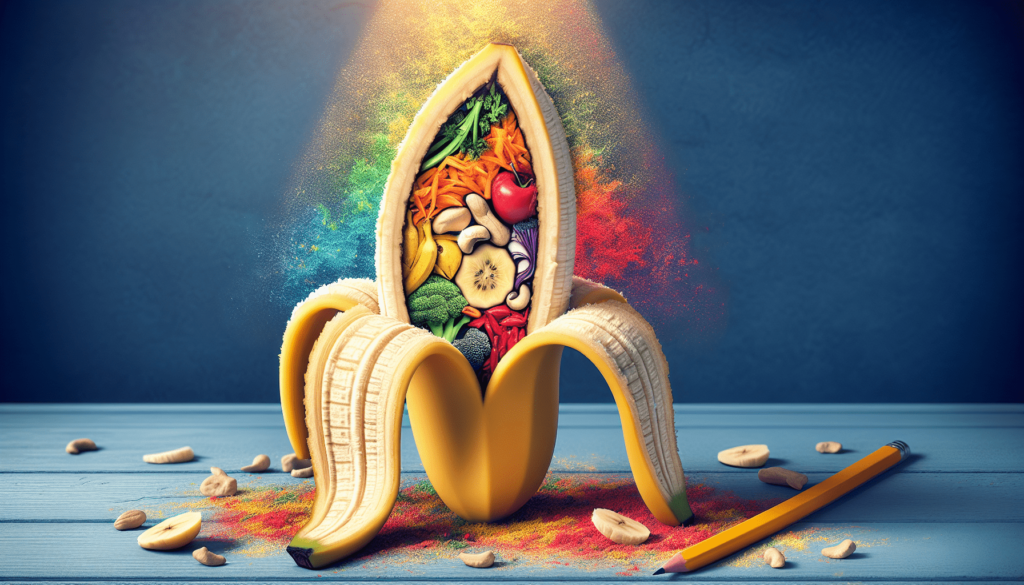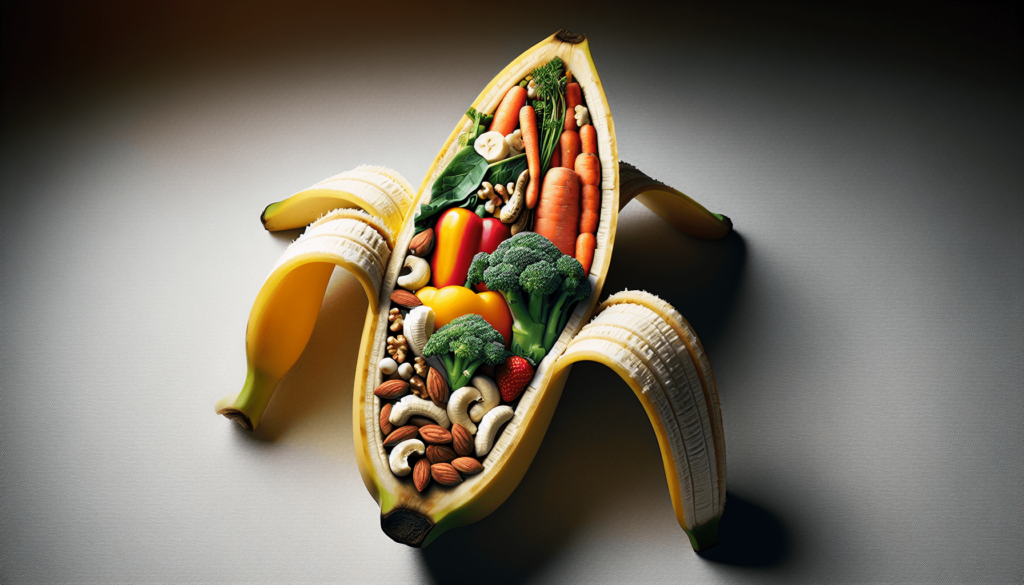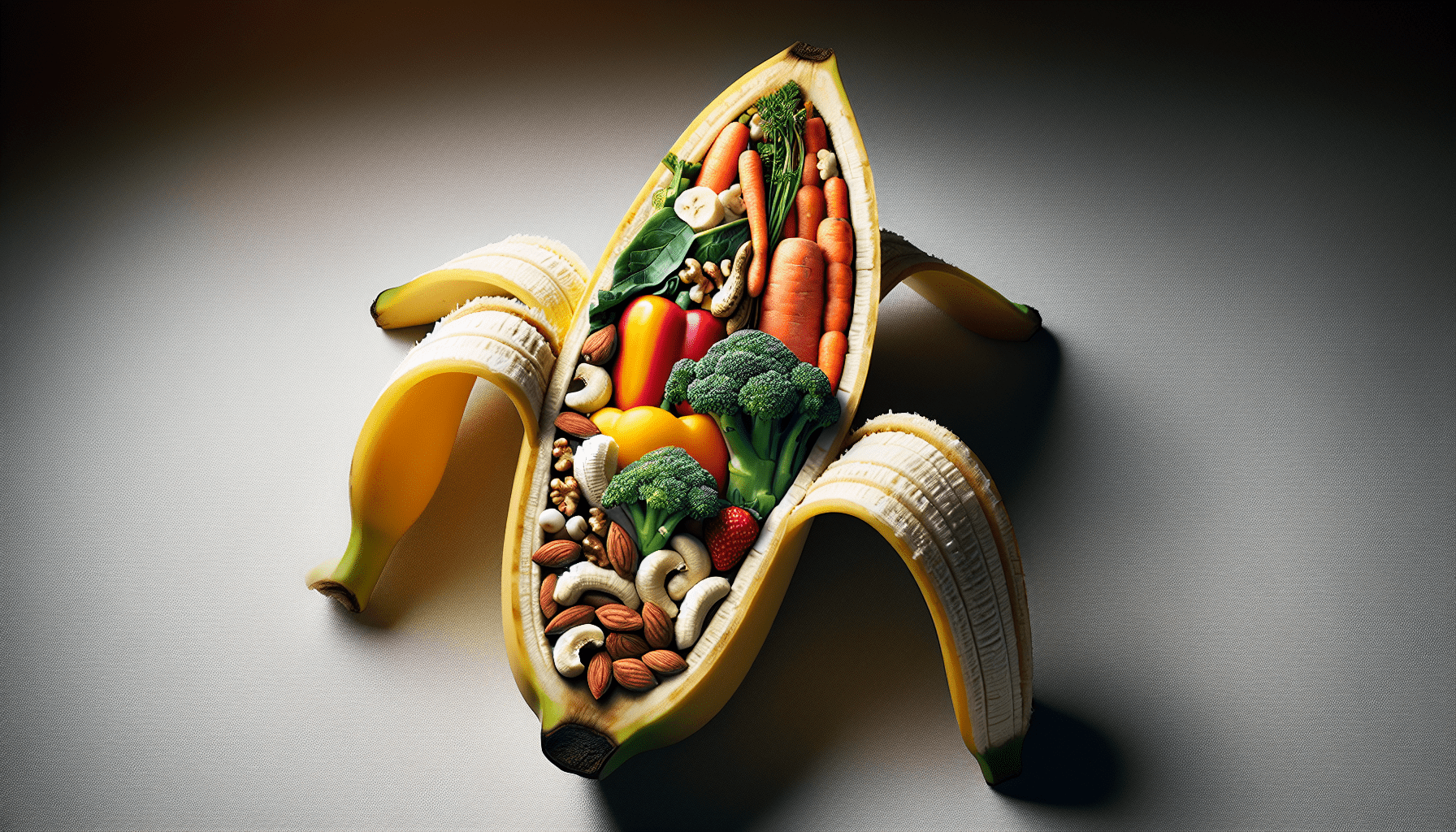Have you ever questioned the nutritional advice that’s been handed down from family, friends, or the ever-mysterious “them” your mother always refers to? You know, those nuggets of wisdom, like “carrots improve your night vision” or “you need to drink eight glasses of water a day or you’ll shrivel up like a raisin”? Well, buckle up, because we’re about to embark on a myth-busting journey filled with more twists and turns than a rollercoaster designed by a caffeine-overloaded squirrel.
That Salad Isn’t Going to Magically Make You Healthy
We’ve all had that friend who’s convinced that a single kale salad will instantly transform their body into a temple of health. Sadly, it’s more of a tender garage shed, at least to start with. The salad myth is like the long-lost relative of the “cash only” payment policy at your local flea market—elusive and strangely confident.
The Kale Conundrum
Kale, praised by many as a superfood, supposedly has enough power packed in a leaf to send Popeye’s spinach running for its money. But while kale does have nutritional benefits, munching on a bowl of kale isn’t going to make you sprout muscles overnight, or grant you immunity from every germ known to humankind. It’s part of a balanced diet, but please don’t turn into a kale-monster, okay? Your taste buds (and possibly your co-workers) will thank you.
The One-Salad Wonder Fallacy
Eating a single salad and expecting to be instantly healthy is like wearing gym clothes and expecting to automatically drop five pounds. Sorry, but it doesn’t quite work that way. Good nutrition requires balance and consistency, like trying to juggle while riding a unicycle—possible, but will take some dedication to get right.
You Need Eight Glasses of Water a Day, or You Might Just Spontaneously Combust
Hydration is important, no doubt. But did you know the “eight glasses a day” myth is as believable as a politician claiming they’ve never made a bad decision?
Water: The Unofficial Life Coach
Realistically, your water needs depend on several factors: body size, activity level, climate, and possibly how many coffees you consumed that had you buzzing around like a mosquito at a backyard BBQ. The eight-glass guideline isn’t a one-size-fits-all rule. Instead, let your thirst guide you—it’s like your body’s friendly reminder system, except it’s significantly less annoying than the snooze button on your alarm clock.
Tallying the Liquid Gold
When considering water intake, remember that foods (often smuggled with liquids) and other drinks contribute. Your morning tea or soup does count, unlike your adorable attempts to consume inspiration directly from Pinterest.

Carbohydrates are the Devil Incarnate
Carbs have been wrongfully accused of causing waistlines to balloon faster than an inflatable bouncy castle. But are they really the villain they’re made out to be?
The Carb Chronicles
Contrary to popular belief, carbohydrates are one of the body’s main energy sources. Eliminating them entirely is akin to trying to start a car without fuel—spoiler alert: it’s a no-go situation. The key is distinguishing between complex and simple carbs, just as important as choosing the right pair of socks to complement your sandals (please don’t do that).
The Balance vs. Banish Dilemma
Choosing whole, complex carbs like whole grains, fruits, and vegetables can keep your energy stable and prevent the dreaded afternoon slump. Simple carbs, like the sneaky ones hidden in doughnuts and candies, are best enjoyed in moderation, preferably not solely within the confines of a Netflix marathon.
Eggs Will Send Your Cholesterol Skyrocketing
For years, eggs have had a poor publicist. They’ve been side-eyed in breakfast buffets as though they were planning a Great Cholesterol Rebellion of sorts.
Scrambling the Facts
While it’s true that eggs contain cholesterol, recent research indicates that dietary cholesterol doesn’t affect your blood cholesterol levels as dramatically as once believed. Apparently, eggs are less like clandestine cholesterol smugglers, and more like misunderstood protagonists in a feel-good movie.
The Sunny Side of Eggs
Moderate egg consumption (around one egg a day) does not pose a risk for heart disease in most people—a fact that should prevent guilt-driven egg avoidance during brunch and those sudden cravings for a three-egg omelet at midnight.

You Shouldn’t Eat After 8 PM
The clock strikes 8 PM and you’re standing in front of your fridge, faced with a life-altering quandary: Is it acceptable to eat, or will you magically gain weight if you so much as look at leftovers past this witching hour?
Midnight Snacker’s Nightmare
The belief that your metabolism transforms into a sleeping sloth post-8 PM is as realistic as expecting cats to suddenly develop an affinity for water. It’s not about the timing as much as it is about the food choices and overall daily caloric intake.
The Hearty Truth
If you’re consuming regular meals throughout the day and find yourself needing that late snack, focusing on fruits, vegetables, or a healthy nibble can help satisfy that evening craving—provided you don’t nap afterward atop a peanut butter jar.
Cooking Destroys All Nutrients in Vegetables
We’ve all heard someone claim that cooking vegetables zaps every nutrient from them, leaving behind sad, nutrient-empty remnants. But this claim might just sink faster than your attempts at competitive synchronized swimming.
The Steamy, Crunchy Truth
While it’s true that some nutrients are better preserved in raw vegetables, certain processes, like steaming, can actually enhance others (such as showing off what steaming can do to your makeup-free complexion—seriously good stuff). Cooking doesn’t annihilate nutrient content but rather transforms it in ways that can make some nutrients more available or remove harmful compounds.
The Un-Cooked Science
Consider tomatoes: when cooked, they increase their lycopene content, beneficial for things like heart health and skin. Just like an artist with a wild imagination, veggies open up amazing possibilities through the cooking process—minus the existential crisis, hopefully.
Conclusion
By now, you’re probably feeling like both a myth-buster and a large, independently-owned grocery purchaser. The reality is that nutrition, much like assembling a new piece of furniture, can be confusing. Nutrition myths are as ubiquitous as dad jokes, but fortunately, less inevitable. Remember this: The key to understanding nutrition is balance, compassion, and sometimes realizing you just really need that slice of cake today. Keep that sense of humor and curiosity alive, and you’ll pick your way through the chaos without becoming a single-food-faction warrior.
So, the next time someone tells you that you can live off kale alone, feel free to laugh, share your newfound knowledge, and reach for another delightful non-kale option—and maybe an espresso to boot.
